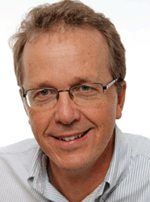Can a social licence to operate be regained once lost? A case study of the New South Wales coal seam gas industry
David Snashall A B and Sabrina Genter AA Environmental Resources Management, 309 Kent Street, Sydney, NSW 2000, Australia.
B Corresponding author. Email: David.Snashall@erm.com
The APPEA Journal 57(2) 549-551 https://doi.org/10.1071/AJ16088
Accepted: 14 March 2017 Published: 29 May 2017
Abstract
The coal seam gas (CSG) industry in New South Wales (NSW) has reached a stalemate, despite a growing demand for domestic gas. The present paper suggests that a key reason for this is the industry’s loss of its social licence to operate, which resulted from a loss in trust and a lack of perceived procedural fairness.
Keywords: procedural fairness, quality contact, stakeholder engagement, trust.

David Snashall is one of the leading practitioners of impact assessment, social impact assessment and stakeholder engagement in Australia. David has over 25 years of experience in dealing with controversial planning and environmental issues, including managing community-engagement programs, and undertaking social-impact assessment. Over the years, David has worked on many mining, oil and gas, land-development and infrastructure projects in Australia and globally. He has also worked with, and provided advice to, a wide range of Government Agencies, including the NSW Department of Environment and Planning, the Commonwealth Department of Environment, the NSW Health Department. He was appointed by the Minister of Agriculture in Western Australia to chair a Committee on Land Use Planning for Prime Agricultural Lands. David is trained in facilitation, has taught courses on social-impact assessment, and has been a guest lecturer on these topics at several universities. He is a peer-reviewed, published author on community-consultation techniques for major urban projects. David is a Fellow of the Planning Institute of Australia, and a member of the International Association of Impact Assessment. David is based in Sydney. |

Sabrina Genter is a Principal Consultant with Environmental Resources Management. She started her career as an environmental scientist, but she quickly recognised the value of effective community engagement while being involved in the remediation of several high-profile contaminated sites. She then shifted her focus to stakeholder engagement and social- and health-impact assessment and management. Over the past nearly 15 years, she has worked with a range of extractive industry clients across the Asia–Pacific region to help identify and manage social risks and impacts. She holds a BSc from Michigan State University, USA, and a MPhil from Murdoch University, Australia. |
References
Lacey, J., and Lamont, J. (2014). Using social contract to inform social licence to operate: an application in the Australian coal seamgas industry. Journal of Cleaner Production 84, 831–839.
| Using social contract to inform social licence to operate: an application in the Australian coal seamgas industry.Crossref | GoogleScholarGoogle Scholar |
Moffat, K., and Zhang, A. (2014). The paths to social licence to operate: an integrative model explaining community acceptance of mining. Resources Policy 39, 61–70.
| The paths to social licence to operate: an integrative model explaining community acceptance of mining.Crossref | GoogleScholarGoogle Scholar |
Taylor, M. R., Sandy, N., and Raphael, B. (2013). ‘Background Paper on Community Concerns in Relation to Coal Seam Gas.’ (University of Western Sydney: Sydney, NSW.)


